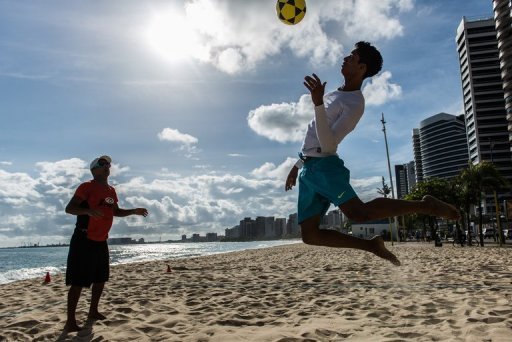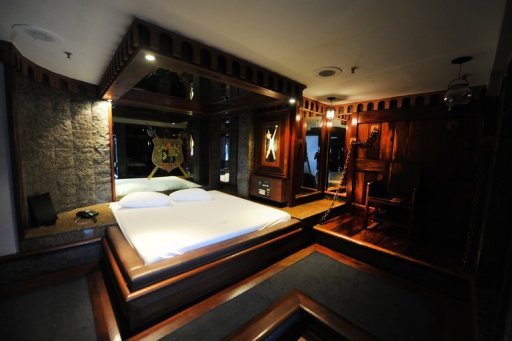
“It is not surprising. Here you have full employment while at home we have a high jobless rate,” he added.
The pair also said they never felt unsafe, including when they toured Dona Marta, the first shantytown that came under police control in 2008 after years in control of drug gangs.
Embratur chief Flavio Dino meanwhile blamed the price hikes on an overvalued reais in relation to the dollar, and to a limited accommodation availability at a time of a high demand due to the upcoming major sporting events.
He also pointed to inadequate infrastructure in terms of goods and services to cope with a growing mass consumption market.
Brazil is as a result paying the price of its spectacular development. Economic growth coupled with social programs have lifted around 40 million Brazilians out of poverty over the past decade.
These new members of the lower middle class are now avid consumers in a country where everything, from shoes to silicon breast implants, can be paid by instalment.
Brasilia wants to use the World Cup to spur development in the 12 host cities which are all potential tourist hubs.
“We must increase offer from hotels and airlines to spur competition,” said Dino, pointing out that over the past 10 years, the number of passengers on domestic flights has more than doubled to more than 100 million.
There are now more than six million passengers on international flights and Embratur is banking on 10 million by 2020.
Authorities have launched a plan to upgrade the country’s congested airports and have invested $4 billion in the hotel infrastructure.
Professor Daniel Pla, a marketing expert at Sao Paulo’s Getulio Vargas Foundation business school, also noted that Brazil is a costly destination.
Domestic travel is expensive and consequently hobbles mass tourism because of the monopoly held by the country’s two major airlines: TAM and Gol.

Fans will therefore need to have deep pockets to follow their respective teams in the various host cities.
“To go from Rio to Fortaleza in the northeast is as expensive as flying to Miami. The government must break this monopoly,” Pla said.
Prices in Rio have skyrocketed since the city was picked in 2009 as host of the 2016 summer Olympics. Prices in other World Cup host cities such as Fortaleza, Recife and Salvador are lower, Pla added.
In Rio, the hotel industry has invested around $1.5 billion in construction of 250 new hotels to bring room capacity from 30,000 today to 50,000 in 2016.
To combat price gouging, it set up a “tourism watchdog”.
Embratur’s Dino said after meeting industry representatives last week that the government would monitor hotel prices to prevent abuses in World Cup host cities.
“The problem is what happens after 2016. Brazil must not be seen as an expensive destination or we will kill the goose that lays the golden egg and hurt tourism for the coming decades,” he warned.
